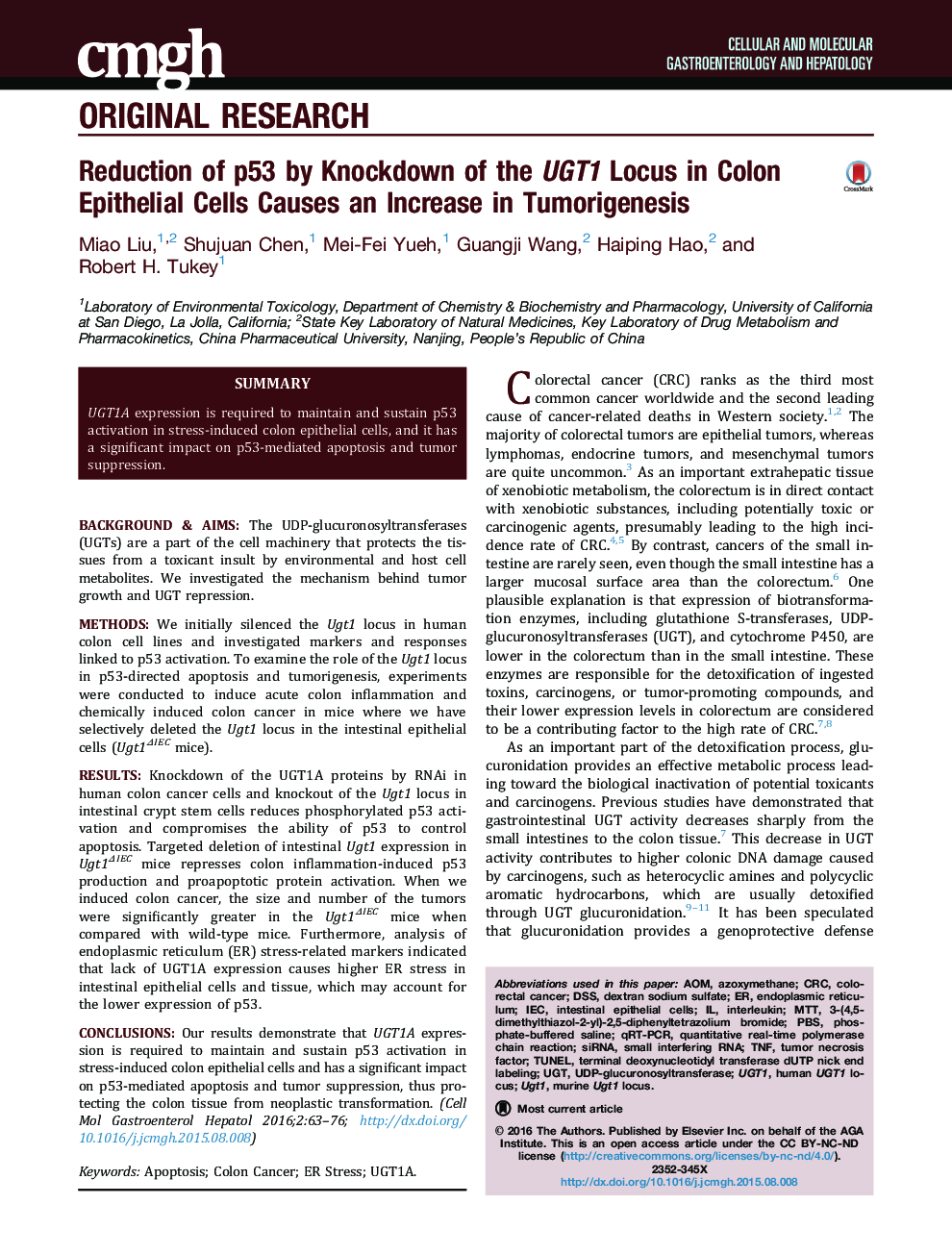| Article ID | Journal | Published Year | Pages | File Type |
|---|---|---|---|---|
| 2040878 | CMGH Cellular and Molecular Gastroenterology and Hepatology | 2016 | 19 Pages |
Abstract
Our results demonstrate that UGT1A expression is required to maintain and sustain p53 activation in stress-induced colon epithelial cells and has a significant impact on p53-mediated apoptosis and tumor suppression, thus protecting the colon tissue from neoplastic transformation.
Keywords
TNFPBSUGT1ADSSazoxymethaneUGTAOMqRT-PCR3-(4,5-dimethylthiazol-2-yl)-2,5-diphenyltetrazolium bromideMTTSmall interfering RNAsiRNAUDP-glucuronosyltransferaseER stressinterleukinTerminal deoxynucleotidyl transferase dUTP nick end labelingTUNELApoptosisColorectal cancerColon cancerIntestinal epithelial cellsdextran sodium sulfateendoplasmic reticulumtumor necrosis factorPhosphate-buffered salinequantitative real-time polymerase chain reactionCRCIEC
Related Topics
Life Sciences
Biochemistry, Genetics and Molecular Biology
Biochemistry, Genetics and Molecular Biology (General)
Authors
Miao Liu, Shujuan Chen, Mei-Fei Yueh, Guangji Wang, Haiping Hao, Robert H. Tukey,
